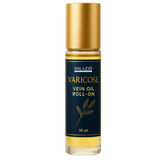Hair plays an important role in how many of us express our identity and self-confidence. That’s why hair loss — especially when it happens suddenly or unpredictably — can be an emotional and challenging experience. One of the leading causes of unexplained hair loss is a condition called Alopecia.
At Shlazio, we believe in holistic wellness and confidence at every stage of your journey. In this blog post, we're shedding light on Alopecia to help raise awareness, promote understanding, and support those affected.
What is Alopecia?
Alopecia is a general term for hair loss. There are several different types, but the most commonly known is Alopecia Areata — an autoimmune condition where the immune system mistakenly attacks healthy hair follicles, leading to patchy hair loss on the scalp and sometimes other parts of the body.
Other forms include:
- Alopecia Totalis – total loss of hair on the scalp.
- Alopecia Universalis – complete hair loss on the scalp and body.
- Androgenetic Alopecia – often referred to as male or female pattern baldness.
- Traction Alopecia – caused by tension from tight hairstyles over time.
What Causes It?
While genetics can play a role, Alopecia Areata is primarily an autoimmune condition. It can affect anyone regardless of age, gender, or ethnic background. In some cases, it’s triggered by stress, hormonal changes, or even certain infections — though the exact causes remain complex and not fully understood.
Living with Alopecia
For many, Alopecia can affect more than just appearance — it can impact self-esteem, mental health, and daily life. But it’s important to remember:
- You are not alone – Millions of people around the world live with some form of Alopecia.
- It is not contagious or life-threatening.
- There are support groups, treatments, and resources available to help manage symptoms and boost confidence.
Treatment Options
While there’s no known cure for Alopecia Areata, there are various treatments that may help stimulate regrowth or manage the condition:
- Topical treatments (like minoxidil)
- Steroid injections
- Light therapy (phototherapy)
- Natural oils and scalp care to maintain a healthy scalp environment
It’s always best to consult with a dermatologist or trichologist to explore the right options for your unique situation.
How You Can Help
- Educate yourself and others – The more we know, the more compassionate we become.
- Support awareness campaigns – Sharing stories, wearing blue ribbons (Alopecia awareness symbol), and donating to research initiatives can make a big difference.
- Celebrate beauty in all its forms – Hair or no hair, every individual deserves to feel seen, heard, and valued.
Final Thoughts
Alopecia doesn't define you — your strength, confidence, and story do. Whether you're personally affected or want to support someone who is, awareness is the first step toward empathy and change.
At Shlazio, we're committed to supporting wellness from the inside out. If you or someone you know is dealing with hair loss, we’re here with products, information, and encouragement to help nourish your scalp and soul.







